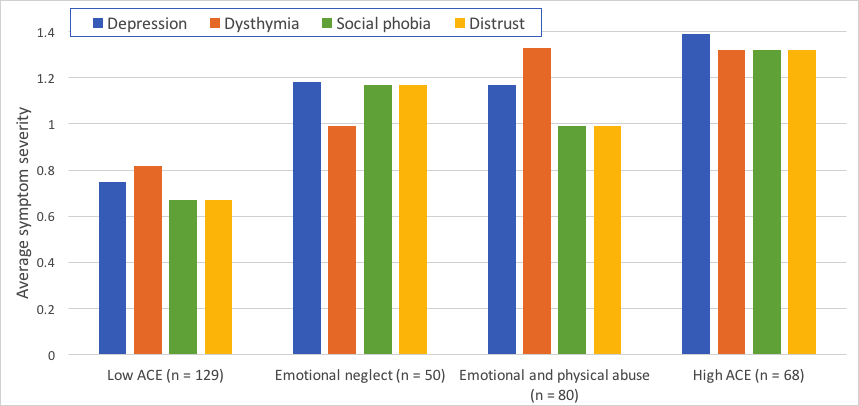People who’ve experienced traumatic experiences have especially high risk for addiction, in many cases because they use alcohol, other drugs, or behaviors like gambling to cope with their bad feelings. Psychotherapy can help with the after-effects of trauma, but researchers caution against a one-size-fits-all approach: there are profound differences in the kinds of trauma people experience and the kinds of treatment they need. This week, The WAGER reviews a study of heterogeneity in childhood trauma among people with gambling disorder.
What is the research question?
Annett Lotzin and her colleagues asked two questions: (1) Are there distinct profiles of adverse childhood experiences (ACEs) among people with gambling disorder and (2) are these profiles associated with distinct patterns of psychopathology?
What did the researchers do?
Lotzin and colleagues used convenience sampling to recruit 329 adults who, at some point in their lives, met diagnostic criteria for gambling disorder. Participants reported whether they experienced 10 different types of ACEs (e.g., emotional, physical, and sexual abuse; emotional or physical neglect; parental separation or divorce). They described any current psychopathological symptoms in 7 categories; we report on 4 here: depression, dysthymia, social phobia, and distrust. Lotzin and colleagues used Latent Class Analysis to group participants according to their ACE histories and then examined associations between ACE groups and current psychopathology.
What did they find?
Nearly 80% of participants reported at least one ACE. ACE histories could best be described using 4 categories:
- low ACE (low probabilities of any kind of ACE; 39.4% of the sample)
- emotional neglect (high probability of having experienced parental separation or divorce, emotional neglect, and parental substance abuse – but no emotional and physical abuse; 15.3% of the sample)
- emotional and physical abuse (high probabilities of being exposed to emotional abuse, physical abuse and emotional neglect; 24.5% of the sample)
- high ACE (high probabilities of multiple ACEs; 20.8% of the sample)
The low ACE group had relatively low levels of each kind of psychopathology. They might be especially motivated to enter treatment and least likely to have co-occurring conditions complicate their treatment. The high ACE group reported greater severity of a range of symptoms, including high levels of distrust. This might make it especially hard for them to develop a therapeutic alliance with a mental health provider. Considering their histories of abuse, they might also carry a biological vulnerability toward poor impulse control. The emotional and physical abuse group and the emotional and physical neglect group tended to report intermediate levels of symptom severity. See Figure.

Figure. Average symptom severity for 4 participant groups defined by ACE histories. Adapted from Lotzin et al. (2018). Click image to enlarge.
What do these findings matter?
It’s important for people experiencing gambling problems or other expressions of addiction to consider how their life histories, especially traumatic experiences, might be influencing their current behavior. It’s essential that mental health providers understand an individual client’s unique history and constellation of co-occurring problems in the treatment of gambling disorder and other expressions of addiction.
Every study has limitations. What were the limitations in this study?
One limitation is that participants recalled both their gambling disorder symptoms and adverse childhood experiences. Their memories might not be perfectly accurate. Not all participants were currently experiencing gambling disorder. The study could be replicated with an independent group of people currently experiencing gambling disorder.
For more information:
If you’re at all concerned about your gambling, you can start the process of change today. Download a free copy of Your First Step to Change. This guide will help you understand your gambling, figure out if you need to change, and create a plan for change.
— Heather Gray
What do you think? Please use the comment link below to provide feedback on this article.




